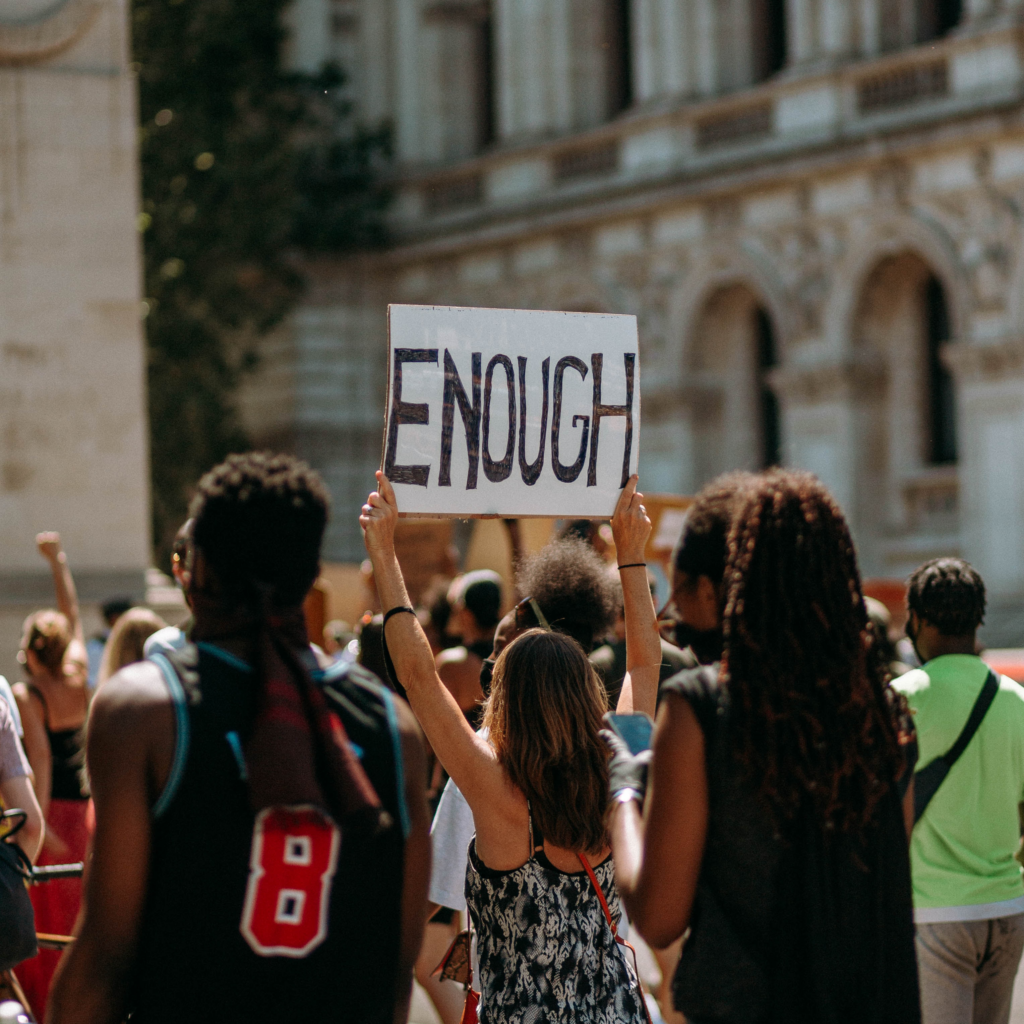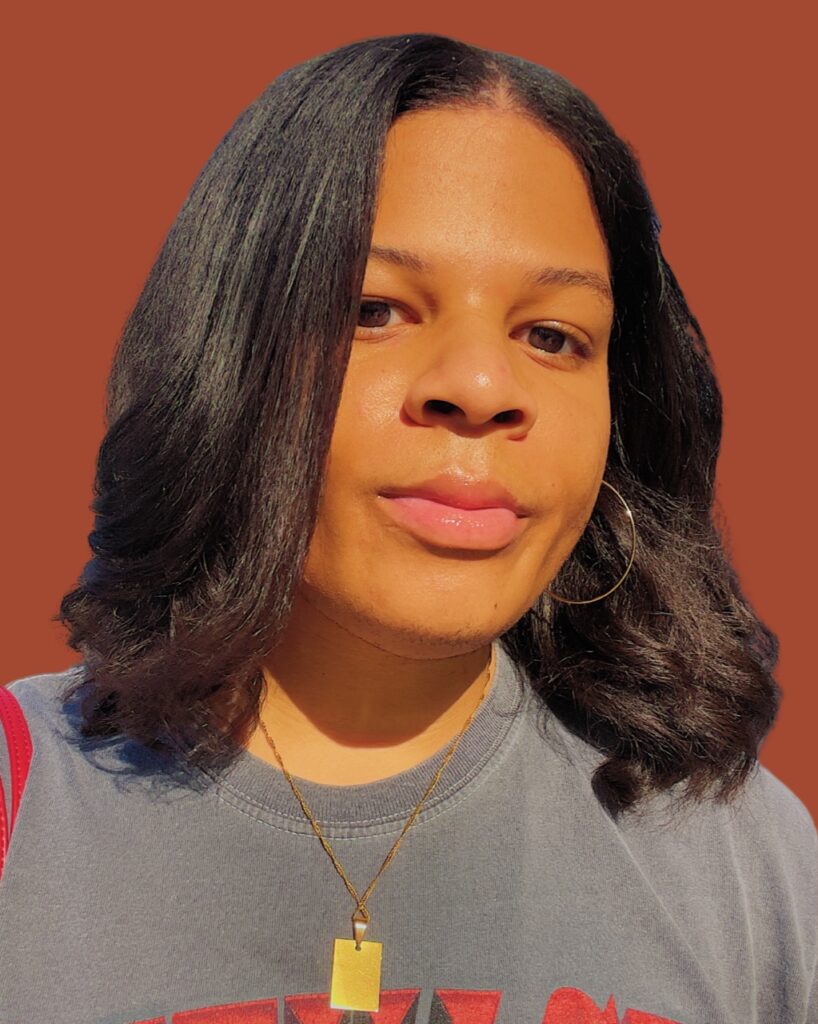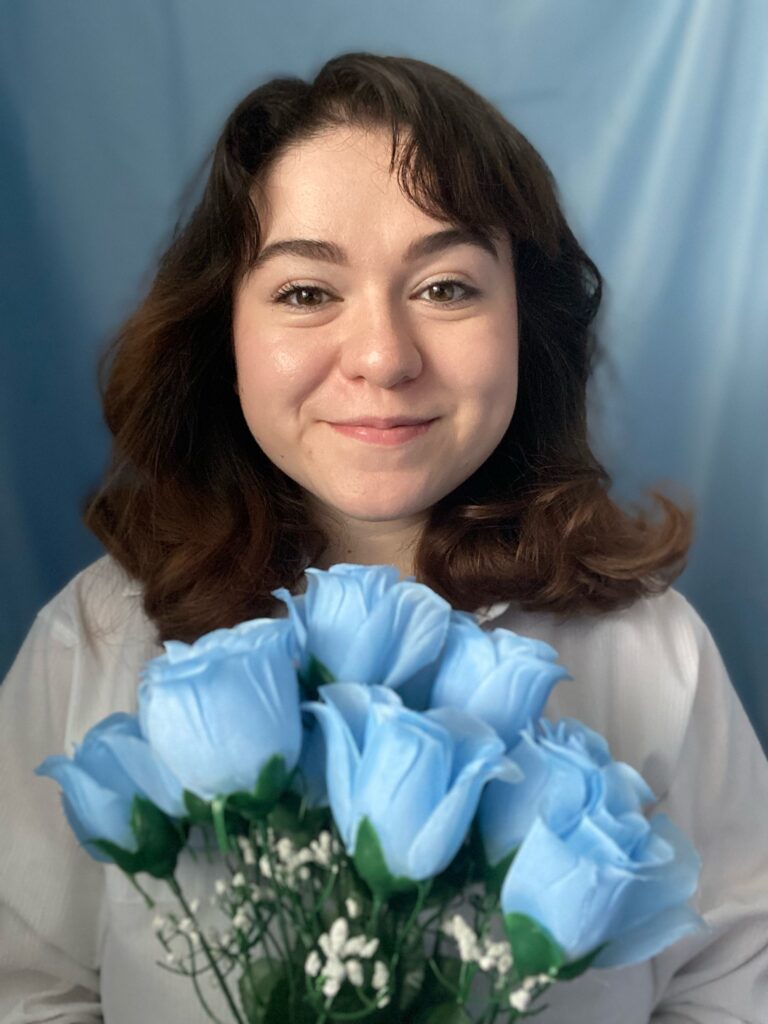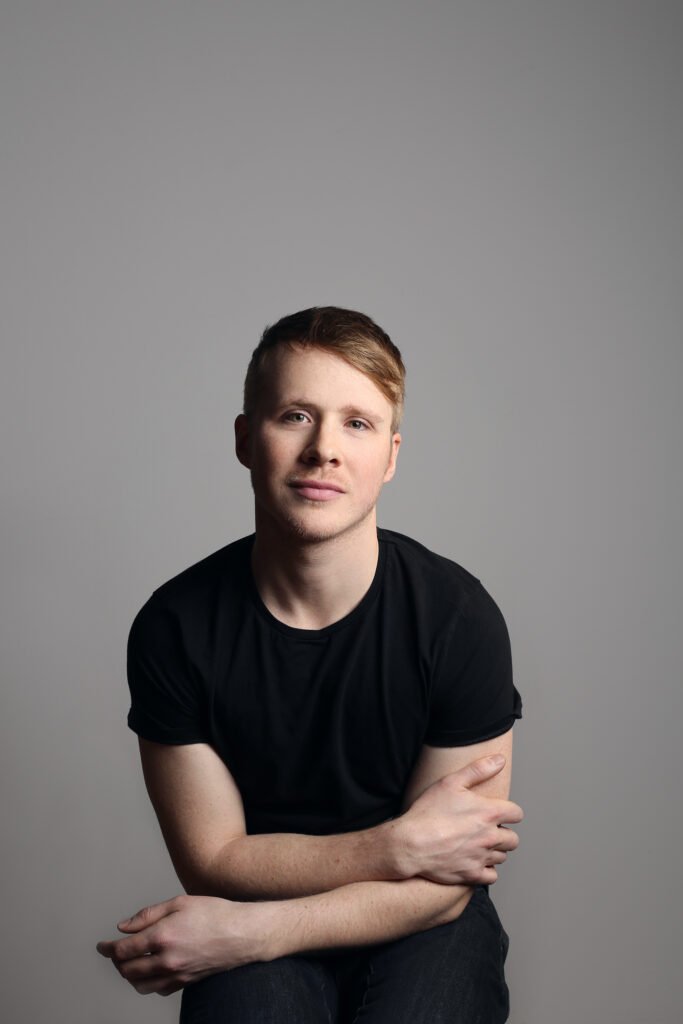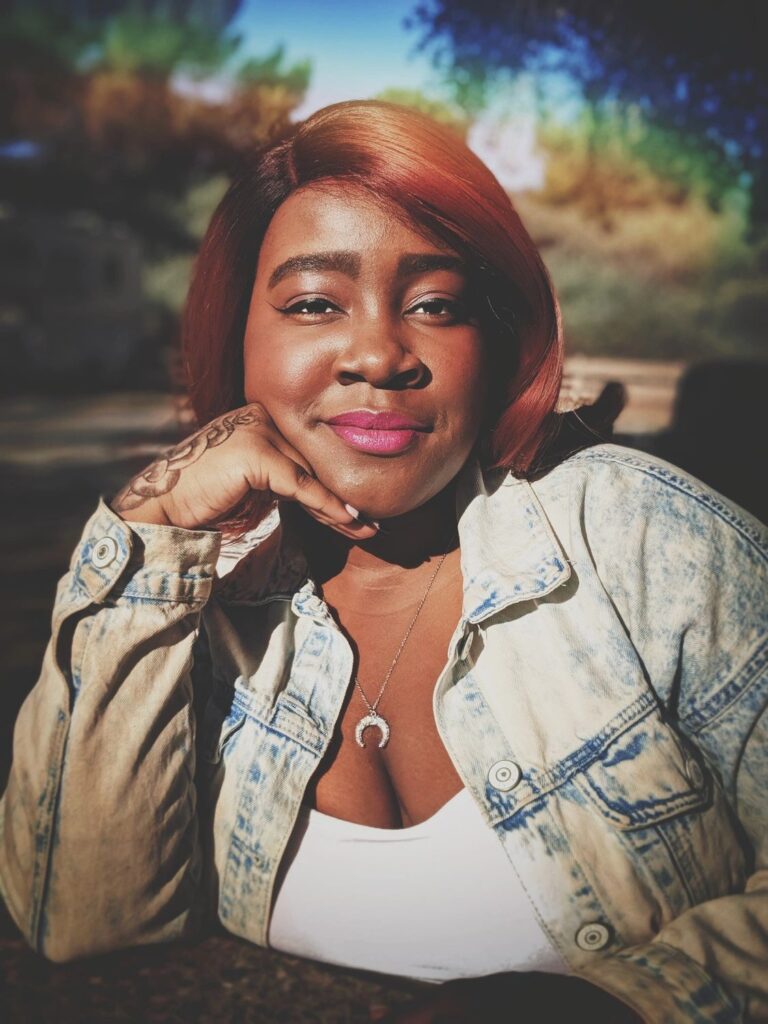By Kellee Terrell
To commemorate the recent launch of our Protected & Served? 2022 Report, we are publishing a series of blogs that will discuss a range of topics, including the importance of examining the ways that LGBTQ+ people and people living with HIV are impacted by the criminal legal system, the groundbreaking data we collected, recommendations for addressing the issues raised by the report, and more. This blog addresses community experiences with the police and mistrust of the criminal legal system.
It’s no secret that LGBTQ+ people and people living with HIV have had a tumultuous relationship with the criminal legal system. Just look at the very beginnings of Pride when Marsha P. Johnson and Sylvia Rivera led the Stonewall Riots in 1969 in protest of police violence and the raids of queer bars.
This is our history.
It also extends to the enactment of HIV criminalization laws during the AIDS epidemic, to the use of sodomy laws to mark LGBTQ+ people as “unindicted felons” until Lambda Legal’s Lawrence v. Texas victory in the U.S. Supreme Court in 2003, to the present where we’ve seen state legislatures pass laws criminalizing parents of trans youth and doctors for medically sound gender-affirming care. As we’ve seen for generations, the criminal legal system has been used as a weapon to surveil, police, criminalize, discriminate, harass, and abuse our communities, especially those who are trans and of color.
With that comes—understandably—a complicated culture of serious, persistent, and ingrained mistrust and fear. LGBTQ+ people and people living with HIV face disparate levels of policing in all aspects of our lives, and many of us experience bias and discrimination in interactions with law enforcement, including when seeking help. Our Protected & Served? 2022 Report found that more than three in ten (31%) participants said they do not trust local police and other law enforcement at all. For younger participants, that number increases to 34% (compared to 21% of those older than 40). For trans participants, it increases to 47% and for gender nonconforming and nonbinary participants, it increases to 46% (compared to 22% of cisgender participants).
Additionally, more than half (57%) of participants had at least one face-to-face encounter with police in the past five years, and that number jumped dramatically for Black participants, two-thirds of whom reported having had contact with police in the same time period. Participants who had face-to-face contact with police were less likely to trust them (32% said they do not trust police at all) than those who had not had face-to-face contact (19% said they do not trust police at all). And nearly half (45%) of participants who had face-to-face contact with police indicated that police engaged in misconduct.
To explore these ideas further, we spoke to LGBTQ+ and HIV+ people about their attitudes toward the police by asking one question: If you were in trouble, would you call the police? What they said was eye-opening:
Daric L. Cottingham
Pronouns: She/they
Los Angeles, CA
I don’t trust cops and haven’t for almost my entire life. To this day, I try to stay out of situations to avoid having to interact with a cop or ever file a report. I was five years old when I had my first experience with a cop. My mother, cousin, older brother, and I were on a road trip from Dallas, Texas, to visit home in Bernice, Louisiana, for a funeral. My cousin and mom took turns driving. During my cousin’s turn, the final stretch into town, a cop pulled us over, saying we looked suspicious.
I remember crying the whole time. We were on the side of the road, and the cop searched our car, throwing all our luggage and belongings on the ground. He obviously found nothing and finally, let us go but stayed to watch us repack the car.
When we finally made it to Bernice, we had “THE TALK,” the one every Black parent has with their child about cops. From then on, I lived with my guard up, knowing I was not included in the people they were meant to “serve & protect.” As an adult and a Black trans woman living with HIV, I know that to be true even more. If I ever needed to file a police report, my identity would be questioned threefold as if I was not the victim but the perpetrator of a criminal act for simply existing. And that my report of a crime would not be taken seriously simply for who I am. Instead of receiving help, I’d be subjected to more violence like I was at five years old.
Bri J. Hernandez
Pronouns: They/Them
Austin, Texas
In a dangerous scenario, I might call the police to ensure someone was on the way to help, but even then, I would also try my friends and family. In other, less serious situations, I would only call the police to make sure there was a paper trail of the incident occurring. In the past, my family has had to call the police after thefts to get documentation for insurance reasons. During these moments, the police were more often than not understanding and impatient.
Once, when my sister was in middle school, her iPod touch was stolen. My parents decided to call the police to tell them about the crime and to try to find some justice. The police officer assigned to us was rude and told my father he “looked familiar.” When my dad asked if the two had maybe gone to school together, the officer gave him a look and said, “That’s not the familiar I meant.”
That experience, though small compared to other police aggressions, is one of many that have affected my friends and family. I grew up learning that the police are not always on our side, and it is up to victims to find other ways to deal with what happens to us. In times of trouble, I find ways I can help myself with resources, and when that is not enough, I look towards community outreach and creating my own justice.
Joe Osmundson
Pronouns: Any
New York City
Hell f*cking no. The police don’t fix trouble; they make it worse.
As a kid, I was an overachieving nerd. We put together a band of nerdy dudes, all of us in marching band, who would hang out on Friday after school, and literally do community service: gardening, weeding for folks, grabbing groceries for older neighbors. One night, at the grocery store, as a bunch of teenage guys, we got the cops called on us.
They yelled. They got physical. We were scared. But I was adamant: We weren’t doing anything wrong. In fact, we were grabbing food for our elderly neighbor. We were policed for being working-class teenage boys. And we were all white in a nearly all-white town.
We did file a complaint. And we won it. But at that moment, the cops made things worse.
As a queer adult, on a cab ride uptown, the driver yelled at my partner and me for sitting too “close” together and then refused to let us out of the car. My partner, against my wishes, called the cops. What did they do? They took the cabbies’ side, made us pay, and told us to file a complaint, all while laughing with him and shooting homophobic remarks our way.
This memory from my childhood has followed me. Every time I see cops harassing someone on the subway platform, that kid rises up in me: They probably weren’t doing anything wrong. And if they were, the cops would only make it worse.
They protect and serve the powerful. They have the right to do harm with impunity, and that harm is more often done to women, people of color, Black people, and queer folks. They don’t fix trouble—they make it.
Clarkisha Kent
Pronouns: She/Her
Virginia
The quick and dirty answer? No. Longer answer? Well, I must consider a couple of things. I’ve been in trouble before, and my first instinct these days is to simply call my very resourceful sister or a friend I trust to figure out what should be done in certain situations.
This instinct of mine is informed by a past that included enough encounters with police to know—even in a so-called best-case scenario—they are useless. Worst case? Shit goes all the way left, and I am harassed, harmed, or experience worse at their hands as a dark-skinned and fat Black woman.
Earlier in life, living with my parents prior to college, the neighbors called the police many times after hearing signs of clear domestic violence/abuse—mainly perpetuated by my father. Hell, at one point, as a middle schooler, I called once or twice myself as well.
And every single time, they’d come, ask who hit who first, write up their little report, wag a finger at my father and then leave. Mind you, DV stats where Black women are concerned are abysmal, and one of these calls very well could have resulted in them walking into a real-deal murder scene. This should have compelled them to intervene, but nope.
So outside of the obvious evidence that the police are quite literally bad for my health as a darker-skinned Black person (because that matters) individually and as an institution, I literally can’t name one situation in my nearly three decades of life where they were actually helpful. So what’s the point of calling them to begin with? Exactly.
Read more Protected & Served blogs:

